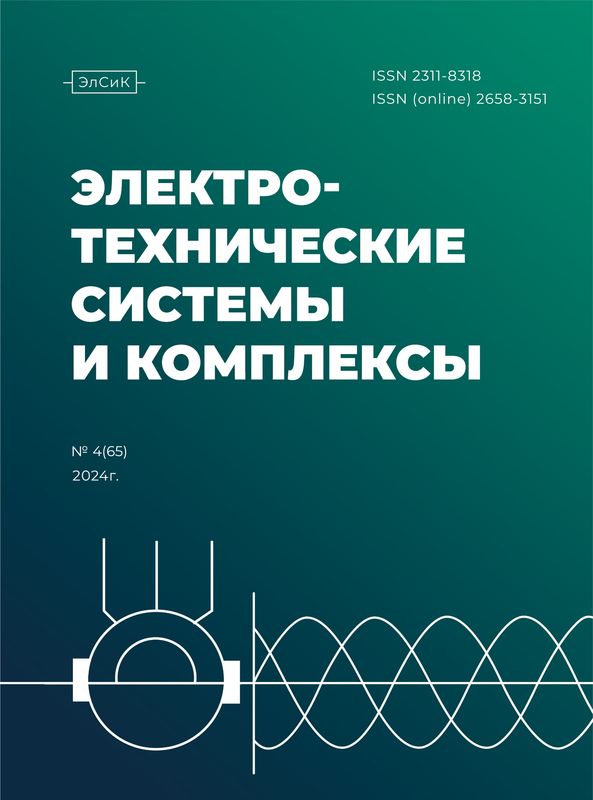Abstract
A large metallurgical enterprise has a complex multilevel hierarchical structure for managing energy consumption. High-precision commercial metering devices for the enterprise as a whole determine total electric energy consumption. At the lower level, that is, at the level of technological facilities, technical accounting of electric energy consumption is implemented by means of metering devices providing lower measurement accuracy. Besides, a great diversity of operating modes of production equipment results in various levels of electric energy consumption in different modes, which makes the task of energy consumption and rationing very complicated. Thus, high uncertainty level of energy consumption at the production level results in certain misbalance during accounting of energy consumption on the basis of data obtained from the production metering devices, which is used to solve the problems of consumption forecasting and rationing. It is necessary to find a balance of high accuracy of devices for commercial accounting of electric energy consumption and technical accounting of electric energy consumption by individual technological facilities of the enterprise.The paper proposes an algorithm for predicting and rationing electric energy consumption by technological facilities of a metallurgical enterprise based on a method of minimizing a general error in predicting electric energy consumption in an energy and metallurgical complex.The obtained energy characteristics can be used in solving problems of optimizing technological processes according to the criterion of minimum energy consumption, as well as for rationing energy consumption.
Keywords
Resource saving, energy saving, resource saving management, power consumption forecasting.
1. Nikiforov G.V., Oleinikov V.K., Zaslavets B.I. Energosberezhenie i upravlenie energopotrebleniem v metallurgicheskom proizvodstve [Energy conservation and energy consumption management in metallurgical production]. Moscow: Energoatomizdat, 2003. 480 p. (in Russian)
2. Koptsev L.A. Energy saving and increasing the economic efficiency of the enterprise by managing the loading of production units. Promyshlennaya energetika [Industrial energy]. 2011, no. 11, pp. 14-21. (in Russian)
3. Koptsev L.A. Rationing and forecasting of electricity consumption depending on production volumes. Promyshlennaya energetika [Industrial energy]. 1996, no. 3, pp. 5-7. (in Russian)
4. Koptsev L.A., Yapryntseva I.A. Modeling of fuel consumption at MMK OJSC. Promyshlennaya energetika [Industrial energy]. 2004, no. 5, pp. 2-6. (in Russian)
5. Kazarinov L.S., Barbasova T.A., Zakharova A.A. Method of predictive management of energy efficiency of an industrial enterprise. Vestnik Yuzhno-Uralskogo gosudarstvennogo universiteta. Seriya: Kompyuternye tekhnologii, upravlenie, radioelektronika [Bulletin of South Ural State University. Series: Computer technology, control, radio electronics]. 2013, vol. 13, no. 2, pp. 12-24. (in Russian)
6. Kazarinov L.S. Upravlenie i poznanie: analiticheskie ocherki [Systems, Control and Cognition: analytical essays]. Chelyabinsk: South Ural State University Publishing Center, 2017. 496 p. (in Russian)
7. Kazarinov L.S., Schneider D.A., Kolesnikova O.V., Barbasova T.A. Avtomatizirovannye sistemy upravleniya v energosberezhenii (opyt razrabotki) [Automated control systems in energy saving (development experience)]. Chelyabinsk: Publishing Center of SUSU, 2010. 228 p.
8. Politov E.A. Postroenie modeley dolgosrochnogo prognoza potrebleniya elektroenergii i moscshnosti promyshlennymi predpriyatiyami: avtoreferat diss. na soiskanie uchenoy stepeni kand. tekhn. nauk [Building models for the long-term forecast of electricity and power consumption by industrial enterprises: abstract of the dissertation for the degree of candidate of technical sciences]. Kemerovo, 2012, 19 p.
9. Derek W Bunn. Experimental study of a Bayesian method for daily electricity load forecasting / Applied Mathematical Modelling. 1980, vol. 4, iss. 2, pp. 113-116. DOI: 10.1016/0307-904X(80)90115-8.
10. Jose Ramon Cancelo, Antoni Espasa, RosmarieGrafe. Forecasting the electricity load from one day to one week ahead for the Spanish system operator // International Journal of Forecasting. 2008, vol. 24, iss. 4, pp. 588-602. DOI: 10.1016/j.ijforecast.2008.07.005.
11. Sigauke C., Chikobvu D. Prediction of daily peak electricity demand in South Africa using volatility forecasting models // Energy Economics. 2011, vol. 33, iss. 5, рр. 882-888. DOI: 10.1016/j.eneco.2011.02.013.
12. Amina M., Kodogiannis V.S., Petrounias I., Tomtsis D. A hybrid intelligent approach for the prediction of electricity consumption // Electrical Power and Energy Systems. 2012, vol. 43, iss. 1, pp. 99-108. DOI: 10.1016/j.ijepes.2012.05.027.
13. Virginie Dordonnat, Siem Jan Koopman, Marius Ooms. Dynamic factors in periodic time-varying regressions with an application to hourly electricity load modeling // Computational Statistics and Data Analysis. 2012, vol. 56, iss. 11, pp. 3134-3152. DOI: 10.1016/j.csda.2011.04.002.
14. Andersen F.M., Larsen H.V., Boomsma T.K. Long-term forecasting of hourly electricity load: Identification of consumption profiles and segmentation of customers // Energy Conversion and Management. 2013, vol. 68, pp. 244-252. DOI: 10.1016/j.enconman.2013.01.018.
15. Gloria Martin-Rodriguez, Jose Juan Caceres-Hernandez. Modelling the hourly Spanish electricity demand // Economic Modelling. 2005, vol. 22, iss. 3, pp. 551-569. DOI: 10.1016/j.econmod.2004.09.003.
16. Andersen F.M., Larsen H.V., Gaardestrup R.B. Long term forecasting of hourly electricity consumption in local areas (Denmark) // Applied Energy. 2013, vol. 110, pp. 147-162. DOI: 10.1016/j.apenergy.2013.04.046.
17. Vincenzo Bianco, OronzioManca, Sergio Nardini. Electricity consumption forecasting in Italy using linear regression models // Energy. 2009, vol. 34, iss. 9, pp 1413-1421. DOI: 10.1016/j.energy.2009.06.034.
18. Afshar K., Bigdeli N. Data analysis and short term load forecasting in Iran electricity market using singular spectral analysis (SSA) // Energy. 2011, vol. 36, iss. 5, pp. 2620-2627. DOI: 10.1016/j.energy.2011.02.003.
19. Mohammed El-Telbany, Fawwaz El-Karmi. Short-term forecasting of Jordanian electricity demand using particle swarm optimization // Electric Power Systems Research. 2008, vol. 78, iss. 3, pp. 425-433. DOI: 10.1016/j.epsr.2007.03.011.
20. Jawad Nagi, KeemSiah Yap, Farrukh Nagi, SiehKiong Tiong, Syed Khaleel Ahmed. A computational intelligence scheme for the prediction of the daily peak load // Applied Soft Computing. 2011, vol. 11, iss. 8, pp. 4773-4788. DOI: 10.1016/j.asoc.2011.07.005.
21. Ashok S. Peak-load management in steel plants // Applied Energy. 2006, vol. 83, iss. 5, pp. 413-424. DOI: 10.1016/j.apenergy.2005.05.002.
22. Lin C.W., Moodie C.L. Hierarchical production planning for a modern steel manufacturing system. International Journal of Production Research. 1989, vol. 27, iss. 4, рр. 613-628. DOI: 10.1080/00207548908942572.










